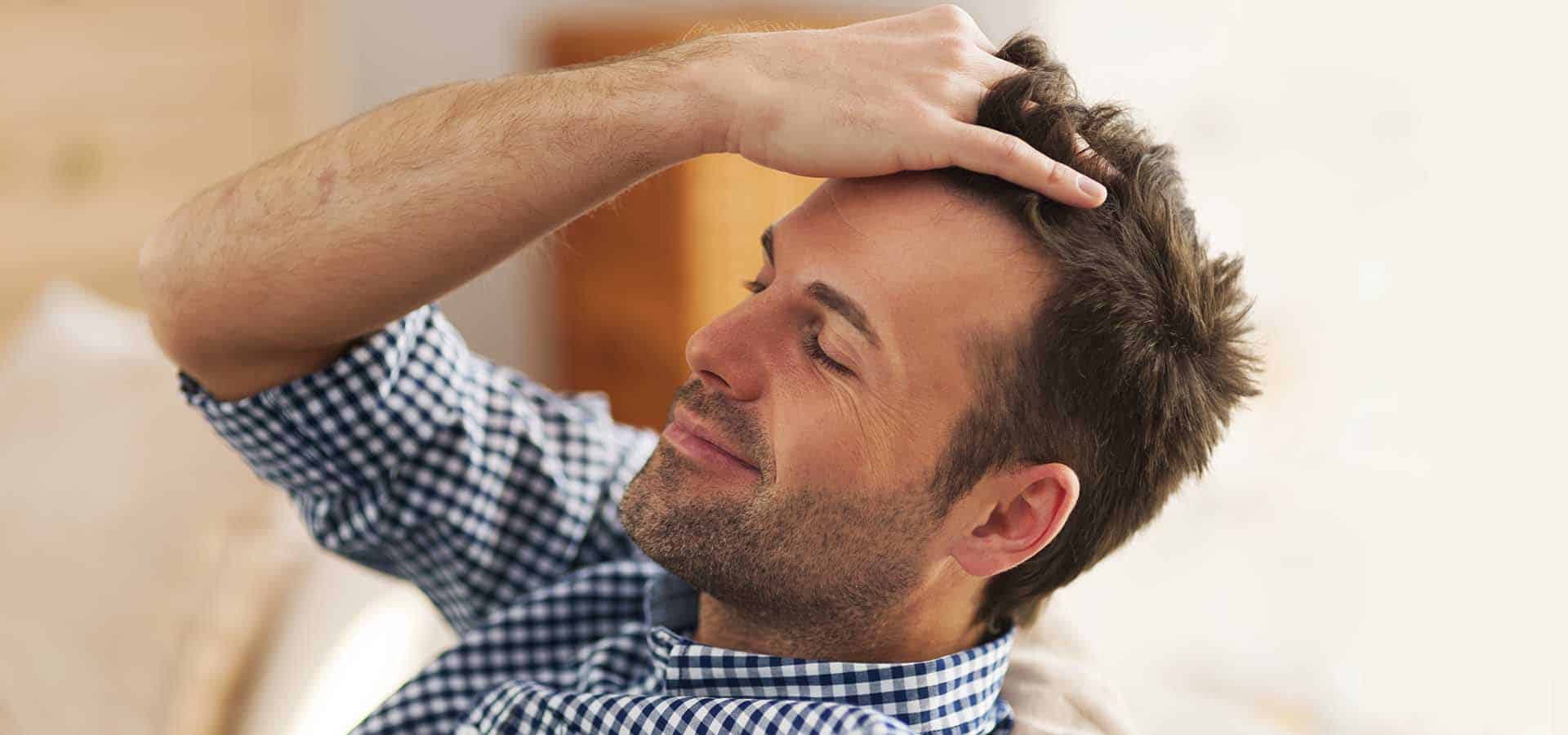How vitamin D affects hair?
Vitamin D is a group of nutrients called calciferols. There are more than six forms of this compound, the best known of which are D2 (ergocalciferol), which is ingested only with food, and D3 (cholecalciferol), which is formed in the skin when exposed to ultraviolet radiation.
Vitamin D is an essential nutrient for the functioning of the body. It is involved in many processes, provides calcium-phosphorus metabolism, absorption of vital nutrients, the immune system, affecting the health of many parts of the body, including skin and hair. How does this happen?
It is known that vitamin D helps the body absorb calcium, which is the main building material for the skeleton, as well as nails, teeth and hair. Hair growth directly depends on the condition of the hair follicles - tiny pores from which new hairs grow. This is the area where sebum is produced and a process called keratinization takes place. transformation of keratin into hair. Scientists have found that hair follicles have vitamin D3 receptors, the so-called VDRs, which play a significant role in hair renewal and growth. Without (or with a lack of) calciferol, the hair fiber weakens, becomes thin, brittle and stops growing. Thus, the solar vitamin is involved in the creation of new hair follicles and, when it is not enough in the body, hair can fall out. In addition, its deficiency causes an increase in the amount of sebum, the excess of which, in turn, exacerbates the problem, contributing to hair loss.
Vitamin D3 for hair has been found to:
- contributes to their good growth (anagen phase)
- reduces the time it takes to replace new hairs (catagen phase)
- protects follicles from external factors
- adds shine to the hair shaft
Vitamin D deficiency symptoms
The body produces vitamin D primarily from exposure to sunlight and to a lesser extent from food. Deficiency in adults develops over a long period of time. Symptoms are often diffuse and are expressed in general fatigue, depressed mood, lack of tone or muscle weakness.
Examples of vitamin D symptoms:
➤ fatigue
➤ depression
➤ lack of tone
➤ bad concentration
➤ muscle weakness
➤ diffuse pain
➤ convulsions
➤ difficulty walking
➤ sometimes pain in bones and joints
➤ sleep disorders
➤ weight gain
➤ dry skin
➤ hair loss
➤ frequent colds
➤ Poor wound healing.
Can vitamin D deficiency cause hair loss?
Vitamin D3 is known to be metabolized by keratinocytes in the skin. Keratinocytes are cells that produce keratin, a protein that is responsible for the appearance and condition of hair, skin, and nails. Hair follicle receptors require calciferol for hair development and growth during the anagen phase. When it is not enough in the body, premature aging of the hair follicles occurs, they cannot start a new cycle, which leads to its loss.
In 2016, The International Journal of Trichology (IJT) published for the first time the results of a study by a group of Indian scientists that showed a link between vitamin D deficiency and hair loss. This study was conducted to evaluate the level of vitamin D in patients with alopecia areata, its correlation with the severity, nature and extent of the disease. As a result, it was concluded that the lack of vitamin D in the body may be one of the factors that play a role in both etiopathogenesis and exacerbation of female pattern alopecia areata and telogen hair loss.
Most studies in people with alopecia and diffuse hair loss have found a decrease in serum 25-hydroxyvitamin D, which may indicate a potential role for vitamin D deficiency in disease pathogenesis. On the other hand, calciferol plays a key role in stimulating the immune system. Its deficiency can be the cause of the development of various autoimmune diseases, including alopecia areata. This form of hair loss is very common among both women and men and is a skin condition in which hair grows in certain areas. Alopecia areata is due to the fact that the body's own defense system attacks some of the skin cells, causing hair loss.
In addition, a lack of vitamin D causes hypersecretion in the scalp, which leads to disruption of the hair growth cycle and another common form of hair loss - diffuse. With a deficiency of calciferol, the hair becomes duller, dry and brittle, dandruff appears.
Is hair loss due to vitamin D deficiency reversible?
While future research will continue to shed light on the full power of vitamin D for hair, there is no doubt that it is the main vitamin in the treatment of two types of baldness: telogen effluvium and alopecia areata. Hair follicles work on the same principle as any other organ: they need nourishment to fulfill their role.
All studies of the relationship between vitamin D levels and hair condition have shown that taking calciferol preparations as a dietary supplement or its local application can be components of complex therapy for non-scarring alopecia, help improve the clinical outcome of this disease and stop hair loss. Therefore, adequate intake of vitamin D can promote hair growth and regrowth.
The effect of vitamin D3 on hair:
✦ Promotes the maturation of hair follicles
✦ Strengthens hair, prevents hair loss
✦ Maintains the normal moisture level of the scalp
✦ Prevents dandruff
✦ Normalizes the blood circulation necessary for the growth of new hairs
✦ Gives hair shine and smoothness.
If you notice severe hair loss or other signs of vitamin D deficiency, talk to your doctor. In particular, he may prescribe an appropriate blood test and recommend dietary supplements containing vitamin D against hair loss.
How to fill the deficiency of vitamin D for the treatment of hair loss?
How to fill the deficiency of vitamin D for the treatment of hair loss?
Most people get most of their vitamin D from sunlight exposure. On average, 20 minutes of sun exposure is sufficient for a daily dose of calciferol. The duration may vary depending on the weather, place of residence, altitude and skin color. It is not always possible to get the required amount of the element from the sun's rays. A healthy diet, including foods rich in calciferol, is an important dietary component in the treatment of hair problems.
It is recommended to review the diet and add to it the following sources of vitamin D:
✓ Milk and dairy products
✓ Caviar, salmon, mackerel and other oily fish
✓ Greens, in particular parsley
✓ Eggs
✓ Sunflower seeds.
Fish oil and animal fats contain high concentrations of calciferol. One tablespoon of cod liver oil provides 340% of the daily value of vitamin D. A large amount of it is present in the liver and meat of fatty fish. You can consume healthy foods fortified with vitamin D: cereals, milk and orange juice, as well as vitamin supplements.
In vitamin D deficiency, for most patients it is recommended to take 12-15 micrograms of the element daily for 12 weeks. There are practically no age restrictions and contraindications to the use of calciferol supplements, the substance is allowed even for pregnant women. Exception: intolerance and allergic reactions to this element.
Fish oil is great for hair. When taken in liquid form, it is recommended to drink one scoop of the supplement for a month. After this period, positive changes will be noticeable: the hair will improve, stop falling out, become shiny and elastic.
Fish oil can be purchased in both liquid form. and in chewable tablets or capsules, which is much more convenient and pleasant to take. During the year, with the permission of the doctor, courses of supplementation can be repeated.
A comprehensive solution, using both internal and external preparations with vitamin D, will accelerate the treatment of hair loss. Use special cosmetics for hair - masks, balms with calciferol.










